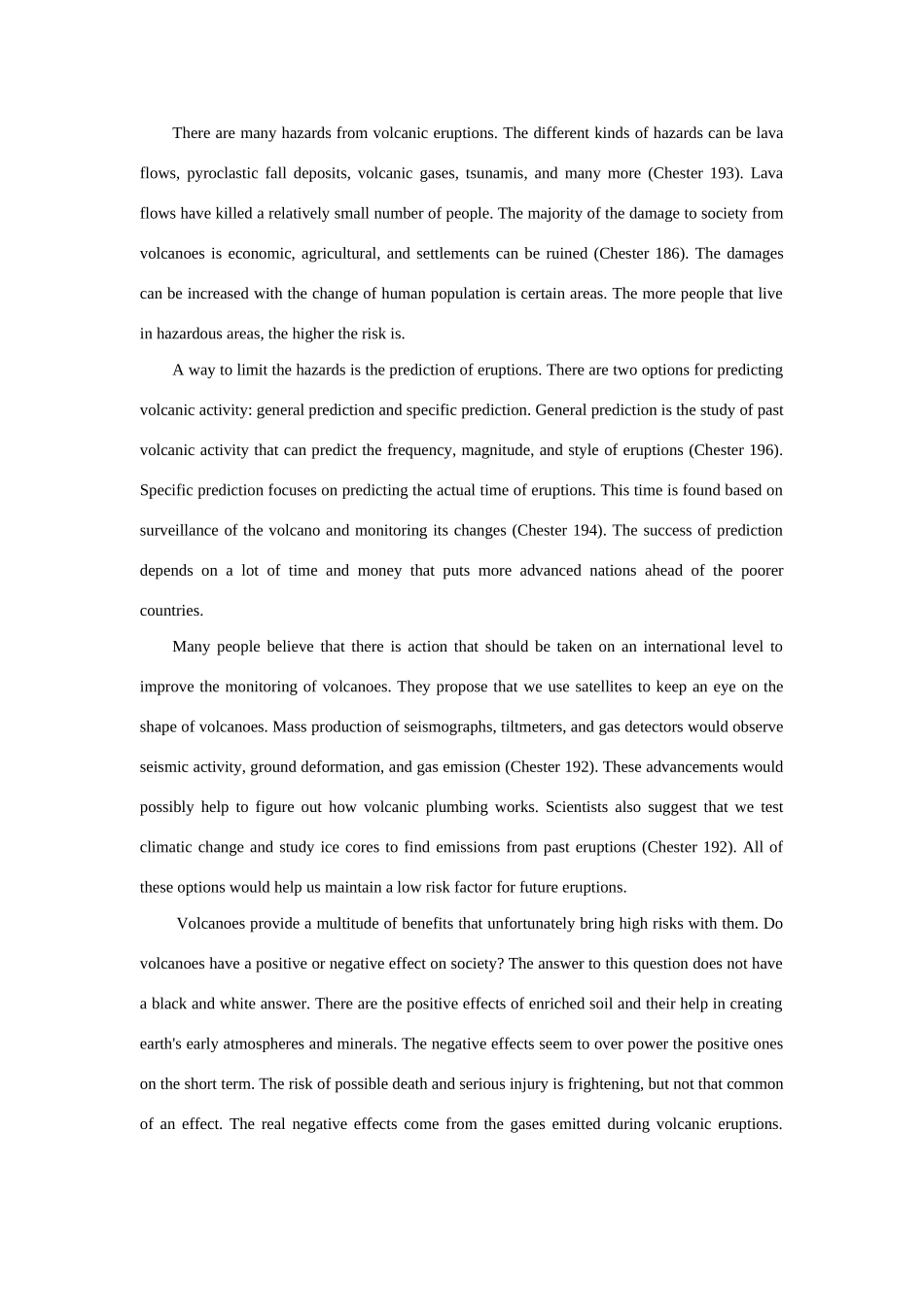The Societal Effects of Volcanoes Volcanoes are known for their violent eruptions and lava flows, but there are many benefits that volcanoes provide for society. Volcanoes help enrich soil for farming and in some cases provide reservoirs for the storage of ground water (Chester 186). Moreover the earth's valuable resources are formed in volcanoes. These elements include fluorine, sulfur, zinc, copper, lead, arsenic, tin, molybdenum, uranium, tungsten, silver, mercury, and gold (Chester 186). Society makes use of all of these elements that volcanoes help to provide. Geothermal power is an alternate energy source that is better for the environment and volcanoes provide this to society also. Volcanoes even help us understand past civilizations and cultures. The lava preserves fossils and artifacts that scientists can learn from (Chester 186). The picture below is a fossilized fish that was preserved by volcanoes. There are five gases that are produced by volcanic activity. All of these gases are harmful except for water vapor. These five gases are water vapor, carbon dioxide, sulfur dioxide, fluorine, and chlorine. Carbon dioxide is one of the main causes of the Greenhouse effect, but there are not significant amounts for the carbon dioxide emitted from volcanic eruptions to contribute to the Greenhouse effect. Humanity is responsible for emitting 110 billion tons of carbon dioxide each year, while volcanoes only contribute 10 billion tons (Fisher). Sulfur dioxide can have a short-term effect on the weather. A sulfuric acid aerosol can remain in the atmosphere for years after an eruption (Fisher). This aerosol blocks the sun and causes cooler temperatures globally. The sulfur dioxide eventually depletes, ...


